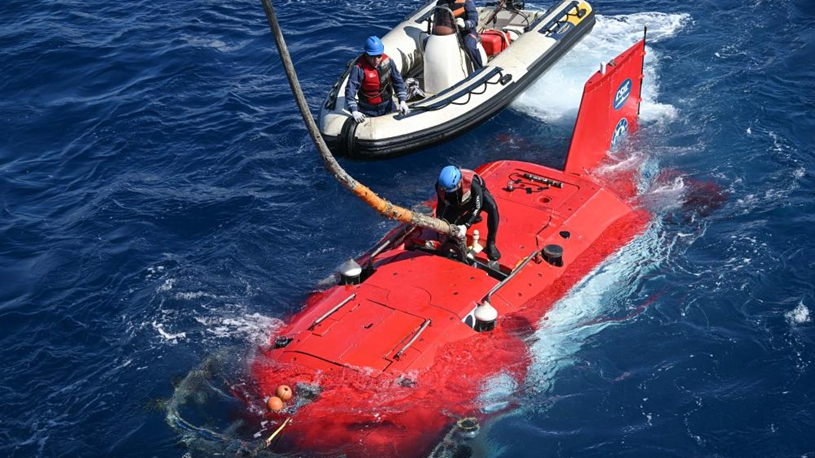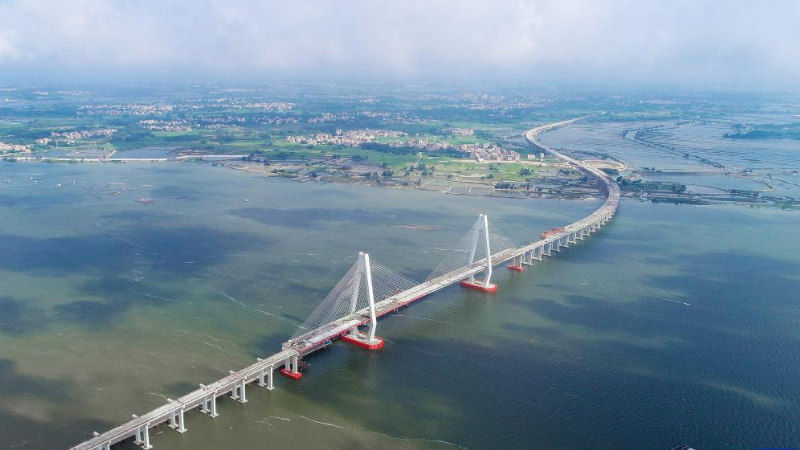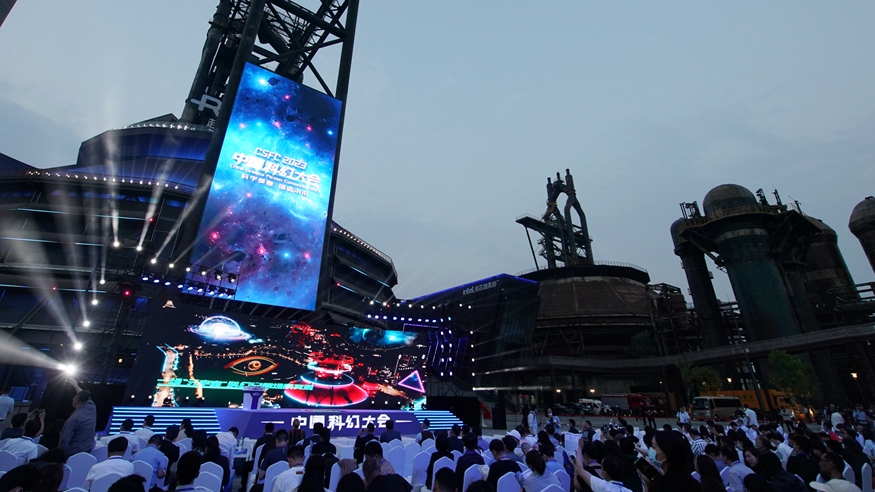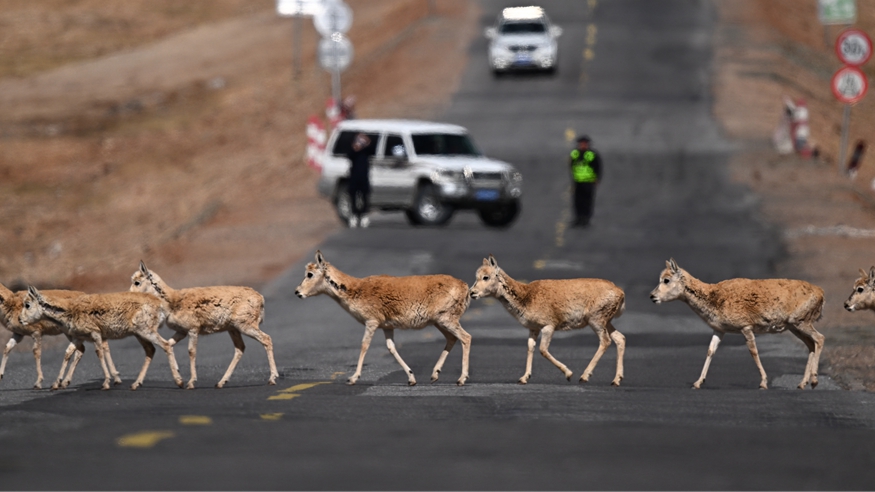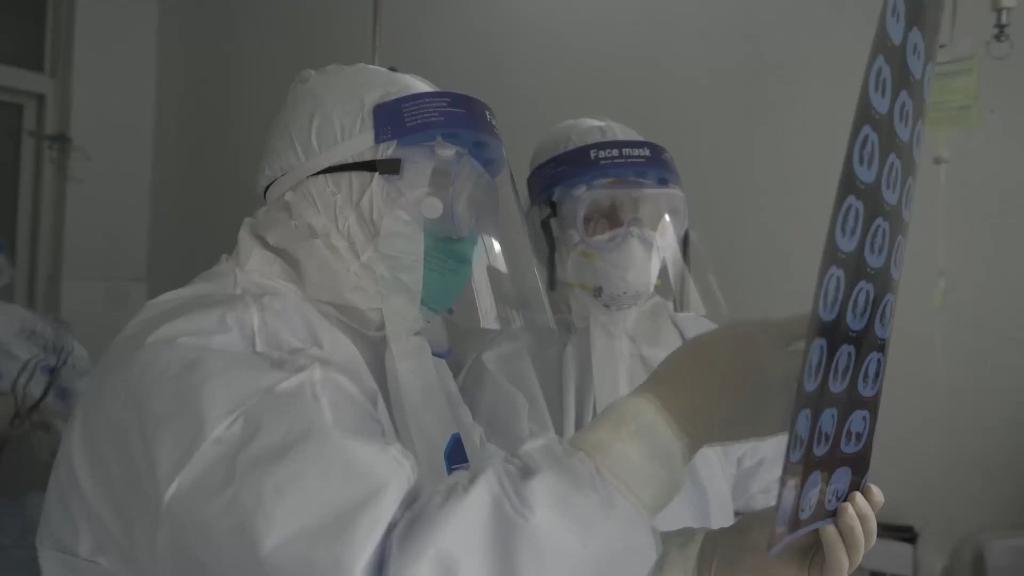
Philis Chifamba offloads firewood from an e-tricycle at her home in Wedza, about 140 kilometres from Zimbabwe's capital Harare on May 19, 2023. (Xinhua/Tafara Mugwara)
As a rural woman from Wedza, about 140 kilometers from Harare, the capital of Zimbabwe, 53-year-old Adefi Mtambo never remotely imagined herself in the driver's seat.
WEDZA, Zimbabwe, June 1 (Xinhua) -- As a rural woman from Wedza, about 140 kilometers from Harare, the capital of Zimbabwe, 53-year-old Adefi Mtambo never remotely imagined herself in the driver's seat.
"I could only operate an ox-drawn cart," Mtambo, a taxi driver, told Xinhua after delivering groceries at a store with an electric tricycle. "I never imagined myself driving a vehicle."
Today she is not just a driver; she is among a group of rural women driving Zimbabwe's green transition through the use of sustainable renewable energy, thanks to Mobility for Africa (MFA), a social enterprise that seeks to bring affordable solar-powered electric transport solutions to rural communities.
In Wedza, the MFA leases electric tricycles adapted to the rural terrain to women whose productivity is often constrained by lack of transport.
So far, the initiative, which is operating from three pilot sites, has not only managed to put women in the driver's seat in easing transportation and accelerating the green transition, it has also enabled them to challenge gender prejudices.
"Traditionally a woman's place has been at the mother seat," Mtambo said, referring to the front passenger seat of a vehicle. "We were not expected to be in the commanding position. But we are now drivers: we are now steering the vehicle."
Armed with her three-wheeler, Mtambo can now conquer the rural terrain with ease.
Known as "hambas" in the local language, the tricycles can carry loads of up to 400 kilograms, and are powered by a swappable lithium-ion battery that lasts about 100 kilometres on a single charge.
The tricycles are imported from China as kits and then assembled and modified to suit local conditions at a factory in Harare.
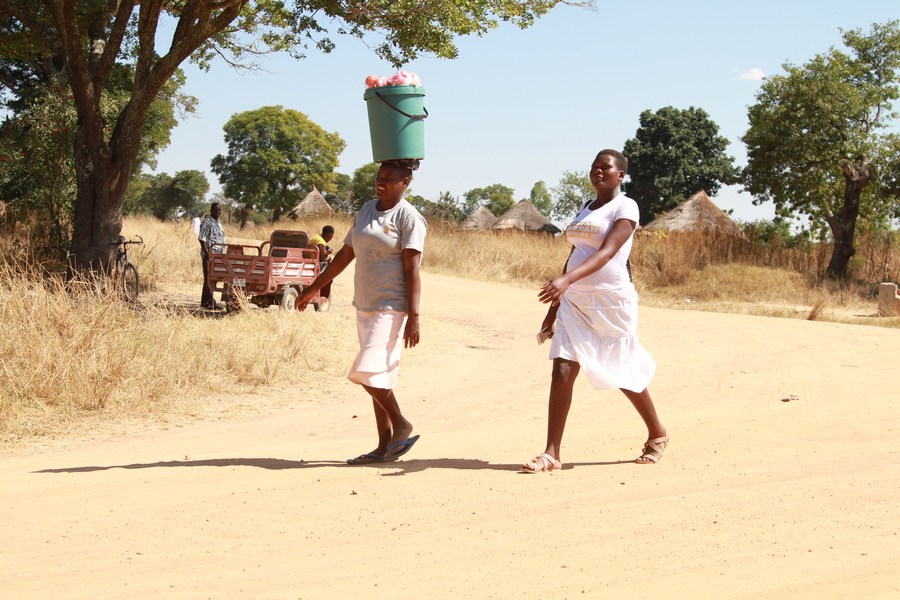
A woman balances a bucket of tomatoes on her head while an e-tricycle is seen in the background in Wedza, about 140 kilometres from Zimbabwe's capital Harare, May 19, 2023.(Xinhua/Tafara Mugwara)
In rural Zimbabwe, women do not only master the art of balancing items on their heads. They also try to balance household chores on their shoulders as well, often walking long distances to fetch water or to collect firewood instead of focusing on productive work.
With the hambas, they can now shoot two birds with one stone.
Philis Chifamba, another beneficiary of the initiative, said challenging traditional gender norms, especially in rural setups that are even more patriarchal, has not been easy.
"During the first days other male drivers refused to give way," she said.
But Chifamba, 38, kept accelerating forward.
"After work as a taxi driver, when I get home I can use the remaining power to fetch water. I can gather firewood for household use," she said.
When selling her farm produce, Chifamba did the math to show how effective the hamba is.
"Let's say I sell the four cabbages that I could carry, which means I could get four (U.S.) dollars," she said. "But a hamba can carry 50 heads, which means I can get 50 dollars."
Her husband, Eric Mudoti, has been supportive from the beginning.
"It's helping a lot (the hamba). We are supporting each other financially," he said.

Adefi Mtambo (L) drives an e-tricycle on a dusty road in Wedza, about 140 kilometres from Zimbabwe's capital Harare, May 19, 2023. (Xinhua/Tafara Mugwara)
Mtambo said the hambas have also proved to be a resource for the whole community. "When we have medical emergencies in the middle of the night, I can offer transport to go to the hospital."
MFA Research and Community Engagement Coordinator Marilyn Maponga said the initiative seeks to create economic opportunities for rural communities.
"We realized that rural women had a burden of doing almost all of the work. They have got the house chores and they also have to do productive work in their gardens, in their farms, as well as going to markets and fetching water," she said.
"Giving them transport was going to make them more time-efficient and make them more productive," Maponga said.

A woman provides taxi service to a man with an e-tricycle in Wedza, about 140 kilometres from Zimbabwe's capital Harare, May 19, 2023. (Xinhua/Tafara Mugwara)
Rumbidzai Chingosho, an assistant engineer at the MFA, said the idea was to address mobility and energy challenges at the same time contributing towards the climate change agenda.
"We understand we are trying to fight for climate change. So we wanted to actually introduce Zimbabwe to those roots of climate change, and we decided: let's do electric mobility; let's introduce electric mobility to Zimbabwe, to Africa and actually prove to them that it's something that we can actually do," she said.
With an investment in December 2022 from InfraCo Africa, part of the Private Infrastructure Development Group, an innovative infrastructure project developer and investor, the MFA is introducing at least 400 hambas, 600 batteries and eight new charging stations in the coming year. ■



